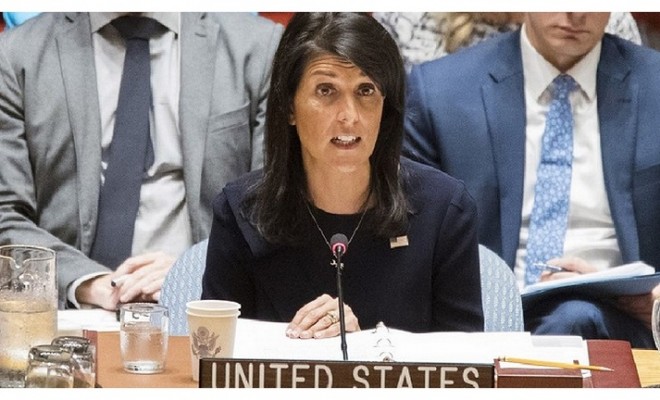
Beyond the echo chamber: Considerations on US policy toward Iran
A conversation with Ambassador Nikki Haley, the United States permanent representative to the United Nations
Next month, President Donald Trump will need to announce whether he finds Iran complying with the terms of the Joint Comprehensive Plan of Action, better known as the Iran deal. At AEI on Tuesday, US Ambassador to the United Nations Nikki Haley outlined some of the administration’s key considerations in assessing Iranian compliance.
US law requires the president to certify every 90 days not only that Iran has not materially breached the deal but also that suspending sanctions against Tehran is appropriate and proportionate to Tehran’s behavior and is vital to US national security interests. Therefore, even if Iran has not surpassed the nuclear deal’s limit on uranium enrichment, the Trump administration could decide not to certify the deal if it violates one of the latter requirements. In such a scenario, Ambassador Haley emphasized that Congress would then have 60 days to decide whether to reimpose sanctions on Iran.
Ambassador Haley asserted that the unwillingness to challenge Iranian behavior for fear of undermining the nuclear agreement endangers US national security. According to the ambassador, the nuclear agreement drew an artificial line between the developments of Iran’s nuclear program and the regime’s nonnuclear aggression. The result, she concluded, is that the last administration and advocates of the deal have subordinated Tehran’s nefarious activities to the preservation of the nuclear agreement.
During the subsequent conversation with Danielle Pletka, Ambassador Haley stressed that the dangerous situation with North Korea today only underlines the urgency of her message.
Beyond the echo chamber: Considerations on US policy toward Iran




